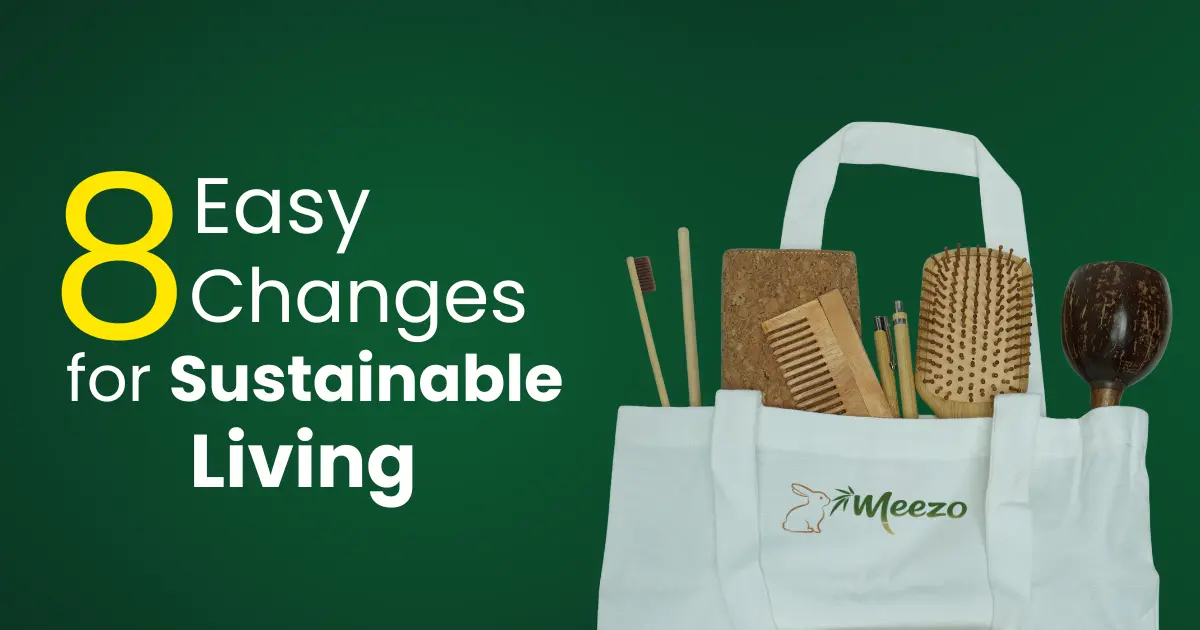

Why Bamboo Products Are The Key To A Sustainable Future
Did you know that bamboo grows up to 91 cm per day, making it the fastest-growing plant on Earth? This remarkable growth rate is just one reason why bamboo products are revolutionizing sustainable living in our modern world.
We're facing unprecedented environmental challenges, from plastic pollution to deforestation. That's why I'm excited to share how eco-friendly bamboo products are offering practical solutions for our everyday needs. From toothbrushes to water bottles, bamboo alternatives are proving that sustainability doesn't mean sacrificing quality or convenience.
Transforming Daily Life with Bamboo
Let's explore how we can transform our everyday lives with sustainable bamboo alternatives. As someone who's passionate about eco-friendly living, I've discovered that bamboo products offer an impressive combination of durability and environmental responsibility.
Essential Household Replacements
In our kitchens and homes, we can make significant changes with bamboo household items. I've found that bamboo cutlery, plates, and bowls are excellent alternatives to plastic, offering both style and sustainability. What's particularly impressive is that bamboo products are naturally antibacterial and odor-resistant , making them perfect for food contact without harmful chemicals.
Personal Care Revolution
We can revolutionize our personal care routines with bamboo alternatives. I've switched to bamboo toothbrushes, which are 100% biodegradable, and bamboo cotton swabs that break down naturally after disposal. One of the most significant advantages is that bamboo personal care items help reduce plastic waste while maintaining the same functionality as traditional products.
Sustainable Fashion Choices
The fashion industry is experiencing a remarkable transformation with bamboo textiles. I've discovered that bamboo fabric offers exceptional breathability and comfort that rivals high-end materials. What makes bamboo clothing particularly impressive is its natural properties - it's not only soft to touch but also offers superior moisture-wicking capabilities.
The versatility of bamboo products extends beyond just these categories. From bamboo charcoal for filtration to bamboo-based packaging materials, we're seeing innovative applications that help reduce our environmental impact. What's particularly encouraging is that bamboo requires minimal water and no pesticides for growth, making it a truly sustainable resource for our daily needs.
Consumer Impact on Environmental Change
When we choose bamboo products, we're not just making a personal choice – we're participating in a powerful environmental movement. I've discovered through research that our individual choices can create remarkable ripples of change.
Individual Carbon Footprint Reduction
I'm amazed by bamboo's extraordinary ability to combat climate change. A single bamboo plant can sequester up to 2 tons of CO2 in just 7 years, compared to a hardwood tree that takes 40 years to sequester 1 ton. What's even more impressive is that bamboo releases 35% more oxygen into the atmosphere than typical trees.
Collective Impact of Consumer Choices
Our purchasing decisions are reshaping markets more than ever before. Recent studies show that 78% of US consumers consider sustainable lifestyle important, and products with environmental claims have shown 28% cumulative growth over a five-year period. Here's what makes our collective impact powerful:
- Products making sustainability claims accounted for 56% of all growth in their categories
- Higher repeat purchase rates (32-34%) for brands with strong environmental commitments
- 66% of global consumers now rank sustainability in their top five purchase considerations
Building Sustainable Habits
I've learned that creating lasting change requires consistent action. When we choose bamboo products, we're supporting a resource that could save more than 7 gigatons of carbon dioxide over 30 years if planted on just 10 million hectares of degraded land. This impact multiplies when we make bamboo products part of our daily routines.
What's particularly encouraging is that bamboo's versatility makes sustainable choices more accessible. From construction materials to personal care items, we're seeing bamboo emerge as a practical alternative that helps reduce our environmental footprint. By making these conscious choices, we're not just reducing our individual impact – we're contributing to a larger movement toward environmental responsibility.
Making the Switch to Bamboo
Making the transition to bamboo products might seem daunting, but I've discovered it's easier than you might think. Let me share my experience and practical insights to help you make this important change.
Starting Your Sustainable Journey
I recommend starting with simple switches that make the biggest impact. Based on consumer studies, these everyday items offer the most immediate environmental benefits:
- Bamboo toothbrushes (100% biodegradable)
- Reusable bamboo coffee cups (saves 100+ disposable cups annually)
- Bamboo cutlery sets (biodegradable and long-lasting)
- Bamboo cotton swabs (fully biodegradable)
Cost-Effective Transitions
I'm excited to share that bamboo products are surprisingly affordable, thanks to the plant's rapid growth and abundance. What I find particularly compelling is that bamboo's quick maturation cycle (3-5 years) helps keep production costs low. When we consider the durability of bamboo items, the cost-per-use makes them an even more attractive investment.
Quality and Durability Considerations
In my research, I've found that bamboo's durability is truly remarkable. Bamboo actually has a higher tensile strength than steel, making it an incredibly robust material for daily use products. With proper care, bamboo products can last anywhere between 5-15 years, though this varies by product type and usage.
What's particularly impressive is that bamboo products require minimal maintenance. I've learned that most items need only basic cleaning and occasional care to maintain their quality. For those concerned about longevity, it's worth noting that processed bamboo can last up to 80-100 years with proper treatment.
Building a Bamboo-Based Future
The future of sustainable living lies in building strong communities around bamboo adoption. I've seen firsthand how this remarkable plant is transforming communities while creating economic opportunities for countless families.
Community Adoption Strategies
In Bangladesh, I've observed remarkable success stories where entire communities have embraced bamboo production. One inspiring example shows how a single training program has empowered over 400 women in the Nilphamari district alone. What's particularly encouraging is that these initiatives have helped establish two Community Facility Centers, providing essential equipment and support for local artisans.
Education and Awareness
I'm particularly excited about the role of education in driving bamboo adoption. Through comprehensive training programs, we're seeing remarkable results:
- Technical skills development in handicrafts and furniture making
- Sustainable farming practices education
- Integration of bamboo education in school curricula
- Practical workshops on product development
Supporting Sustainable Markets
The market potential for bamboo products continues to grow impressively. I've found that the global bamboo market is projected to grow at a 10.9% CAGR from 2024 to 2034. What makes this growth particularly significant is its impact on local economies – bamboo enterprises are creating job opportunities in areas most affected by poverty.
What I find most encouraging is how bamboo cultivation is becoming a tool for community development. Organizations working directly with local communities ensure that the benefits are shared equitably. Through small businesses and social enterprises, we're seeing new sources of income generation and improved quality of life for rural communities.
The transformation extends beyond just economic benefits. I've noticed that bamboo enterprises are particularly effective in empowering women and marginalized groups. By providing technical expertise and market access, these initiatives are creating sustainable livelihoods while promoting environmental conservation.
Conclusion
Bamboo products offer us a remarkable opportunity to reshape our relationship with the environment. Through my research and personal experience, I've seen how this versatile plant addresses multiple challenges - from reducing our carbon footprint to creating sustainable livelihoods. The numbers speak for themselves: bamboo's ability to sequester carbon 40 times faster than hardwood trees, while supporting a market growing at 10.9% annually, proves its potential as a sustainable solution.
My journey into bamboo alternatives has shown me that sustainable living doesn't require massive sacrifices. Simple switches, like choosing bamboo toothbrushes or kitchenware, create ripples of positive change. These small decisions support both environmental conservation and community development, particularly in regions where bamboo cultivation provides vital economic opportunities.
The future of bamboo looks promising, backed by growing consumer awareness and market demand. As someone deeply invested in sustainable living, I believe bamboo products represent more than just eco-friendly alternatives - they symbolize a practical path toward environmental responsibility and community empowerment. Each bamboo product we choose helps build a more sustainable world, one small change at a time.











2 comments